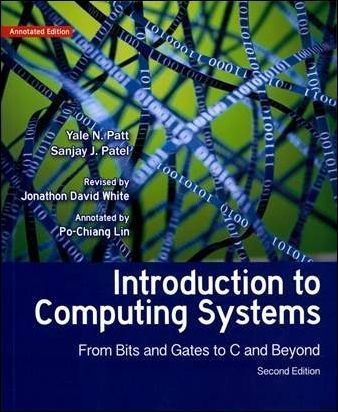書籍分類

Introduction to Computing Systems:From Bits and Gates to C and Beyond 2/e (Annotated Edition) 導讀本
作者:Yale N. Patt, Sanjay J. Patel 著;白小明 修訂;林柏江 導讀
原價:NT$ 1,250
ISBN:9789863413165
版次:1
年份:2017
出版商:東華書局
頁數/規格:632頁/平裝雙色
版次:1
年份:2017
出版商:東華書局
頁數/規格:632頁/平裝雙色
內容介紹 目錄
- 本書特色
We live in an increasingly multi-lingual world. While in the past it was sufficient to be proficient in one natural language, it is becoming essential for the engineer to have a working knowledge of two of the three major world languages (English, Spanish, Chinese) according to the Institute of Electrical and Electronic Engineers (IEEE). In this revised bilingual edition, the key words and concepts of each chapter are summarized in Chinese and explored more fully in English. By first reading the Chinese summary, then delving into the material in English, followed by a reread of the Chinese, the learner will be able to assimilate the material in two languages.
本書是採用由下而上的方式,從最底層的位元、邏輯閘等基礎知識開始,如同蓋房子一般,一層一層地把電腦運算的所需知識往上加。更加難得的是,兩位作者在書中設計了一套教學用途 LC-3 電腦系統,包括了指令集以及微架構,總共只有 15 種指令,易於學習與理解。本書分為兩部分,前半部主要採用的程式語言是 LC-3 的機器語言以及組合語言,後半部則是使用 C 語言。讀完本書後,讀者將能夠使用 C 語言來撰寫程式。筆者在每一章皆提供中文導讀以及重點整理,希望對於讀者有所幫助。
分類位置:
資訊 > 計算機概論


